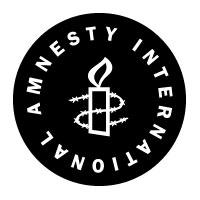Kenya: Amnesty International concerned at police killings in election protests

Amnesty International is concerned about reports that dozens of people have been killed in different parts of Kenya, many by police bullets, during protests against alleged fraud in the general elections held three days earlier. This followed the official announcement on 30 December of a narrow win by President Mwai Kibaki over presidential opposition candidate Raila Odinga.
According to early reports and eyewitness accounts, police shot at protestors, killing dozens and wounding many more. Some of the protestors threw stones, carried machetes, barricaded roads or damaged property.
"Amnesty International calls on the Kenyan government to establish an independent and impartial inquiry into the killings in the opposition strongholds of Kisumu town in western Kenya, in Nairobi’s Kibera slum, in Mombasa and elsewhere where people have been killed as a result of the post-electoral violence," said Erwin van der Borght, Amnesty International’s Africa Programme Director. "Those responsible for human rights abuses should be brought to justice without undue delay."
"The government should ensure its security forces comply with international standards on the use of lethal force against demonstrators." Under the UN Code of Conduct for Law Enforcement Officials and the UN Basic Principles on the Use of Force and Firearms by Law Enforcement Officials, police may use force only when strictly necessary and only to the minimum extent required by the circumstances. Lethal force should not be used except when unavoidable in order to protect life.
"Amnesty International urges the government to respect and protect basic human rights in the period following the disputed presidential elections," said van der Borght. "This includes the right to freedom of expression and peaceful assembly which are guaranteed by Kenya’s Constitution and the international human rights treaties to which Kenya is a party."
Amnesty International also calls on Kenyan authorities and political parties to take steps to prevent further violence with the aim of ensuring effective respect and protection for human rights.
Background
On 27 December presidential and parliamentary elections were held in Kenya. On 30 December the official Electoral Commission of Kenya announced that President Mwai Kibaki had won the presidential election over opposition candidate Raila Odinga. Raila Odinga’s Orange Democratic Movement (ODM) won a large majority of parliamentary seats over Mwai Kibaki’s Party of National Unity (PNU) and other parties.
Mwai Kibaki was quickly sworn in as the new president on 30 December. Election observers have questioned the credibility of the counting and tallying of the presidential vote. As political tension mounted, the government banned live broadcasting by the Kenyan media about the election results. The independent Media Council of Kenya criticised the ban as violating the freedom of the media. The government banned an ODM demonstration planned in Nairobi for 31 December, which was then postponed by the ODM.
 Back and Next - Back and Next
Back and Next - Back and Next See Also - See Also
See Also - See Also